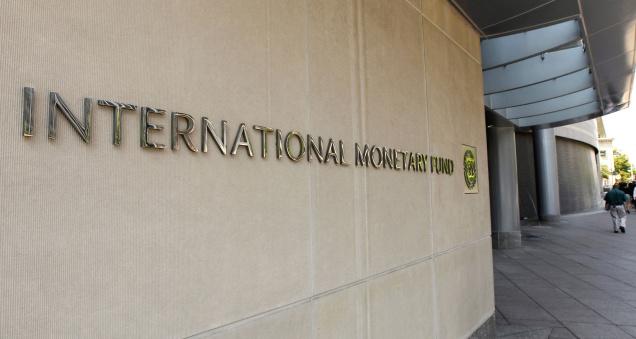ZIMBABWE'S "main near-term risks" relate to further fiscal under-performance and uncertainty in the external environment that could see lower commodity prices, particularly for key mineral exports, the International Monetary Fund said on Monday at the conclusion of the Article IV consultation.
This comes after Government reported a cumulative deficit of $33,5 million in the four months to April from a surplus of $52,06 million in March.
Total revenue was at $1,12 billion against a target of $1,17 billion, a negative variance of $55,14 million.
Tax revenue was below target at $1,02 billion, missing the $1,106 billion target by $82,42 million. Tax revenue was mainly weighed down by lower than expected Value Added Taxes (VAT), royalties in tandem with the decline in mineral production and under-performing custom duties.
The total value of mineral production excluding diamonds in the four months to April dropped 8,54 percent to $596,42 million against the same period last year, weighed down by the weaknesses in international gold prices and low investment in the sector.
According to latest figures from the Chamber of Mines availed by the Finance Ministry; gold production was 4 484,5kg with a total value of $183,122 million. This is below the 4 500,21kg produced last year with a total value of $224,73 million.
The IMF said other risks relate to policy inconsistencies that could affect investment and financial sector vulnerabilities — specifically, liquidity shortages and "disorderly" unwinding of troubled banks.
"Zimbabwe's fragile economic situation characterised by a growth slowdown, a large external deficit, and low international reserves," said IMF.
The IMF expressed concern that Zimbabwe's external position remains precarious but welcomed the authorities' commitment to rebuild external buffers.
The report underscored the need to improve debt management and the IMF supported the strategy to seek mainly grants and highly concessional resources, while limiting non-concessional financing to critical development projects with high economic returns.
The IMF directors noted that strong macro-economic policies and a comprehensive arrears clearance framework supported by development partners are essential to addressing Zimbabwe's debt problems.
They encouraged the authorities to engage in co-ordinated discussions with the World Bank and other international financial institutions (IFIs) and called on them to respect the preferred creditor status of IFIs, avoid selective debt service, and increase payments to the Fund's Poverty Reduction and Growth Trust as capacity to repay improves.
With risks on the downside, the IMF highlighted the need to restore fiscal and external sustainability and reduce financial vulnerabilities. It emphasised that achieving sustainable and inclusive growth requires determined and comprehensive reforms.
The IMF forecast the economy would grow 4 percent on average in the medium term on slowdown in mining investments.
"The medium-term outlook, under the baseline scenario, is for growth to average some 4 percent, as large mining sector investments reach full capacity," said IMF.
The current account deficit is expected to improve but will remain high, averaging 15 percent of GDP.
"In addition, planned fiscal consolidation should facilitate a modest rebuilding of fiscal and external buffers, including international reserves.
"Zimbabwe faces serious medium-term challenges and achieving sustainable, inclusive growth will require strong macro-economic and financial policies, an enabling business environment and normalised relations with creditors."
- The Herald
 Concern over Masvingo black market
Concern over Masvingo black market  Kenya declares three days of mourning for Mugabe
Kenya declares three days of mourning for Mugabe  UK's Boris Johnson quits over Brexit stretegy
UK's Boris Johnson quits over Brexit stretegy  SecZim licences VFEX
SecZim licences VFEX  Zimbabwe abandons debt relief initiative
Zimbabwe abandons debt relief initiative  European Investment Bank warms up to Zimbabwe
European Investment Bank warms up to Zimbabwe  Young Investment Professional (YIP) Graduate Programme 2019
Young Investment Professional (YIP) Graduate Programme 2019 











 Young Investment Professional (YIP) Graduate Programme 2019
Young Investment Professional (YIP) Graduate Programme 2019
Editor's Pick